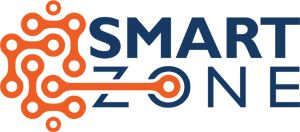Employment Trajectories of Data Science PhD Graduates: Academia, Industry, and Beyond
سبتمبر 20, 202415 Finest Alternatives To Omegle For Random Video Chat In 2024
سبتمبر 20, 2024The field of data research has grown exponentially over the past several years, and with it, the demand for skilled professionals who can find the way complex datasets, develop superior algorithms, and derive flawed insights from data. Subsequently, the number of PhD programs with data science and relevant fields has also increased, providing graduates with deep expertise in areas such as machine learning, statistics, and computational methods. However , the career trails available to these highly trained people are varied, and the choices they make can significantly impact the two their professional development and also the broader field of data technology.
One of the most traditional career trajectories for PhD graduates continues to be academia. For those with a passion for research and coaching, a tenure-track faculty position at a university or exploration institution offers the opportunity to follow independent research, mentor the next generation of data scientists, and contribute to the academic discourse. The allure of academic freedom, the possibility of creating groundbreaking discoveries, and the intellectual stimulation of working in a scholarly environment are solid draws for many PhD students. However , the academic job market is definitely notoriously competitive, with more PhD holders than available skills positions, leading some students to consider alternative paths.
Recently, the private sector provides emerged as a prominent destination for data science PhD graduates. The industry’s rapid ownership of data-driven decision-making has created a strong demand for professionals who can apply advanced analytical ways to real-world problems. Graduates entering industry roles often find themselves working for tech companies, finance institutions, healthcare organizations, or startups, where their skills are generally applied to tasks ranging from establishing predictive models to perfecting business processes. These functions typically offer competitive wages, opportunities for career advancement, along with the chance to work on cutting-edge jobs that have immediate, tangible effects.
A key factor driving PhD graduates toward industry will be the opportunity to work on applied types of have direct societal ramifications. While academic research could be deeply rewarding, it is often carried out in a more abstract or maybe theoretical context, with useful applications sometimes years or maybe decades away. In contrast, business roles often involve resolving problems with immediate relevance, for example improving customer experiences, enhancing product recommendations, or establishing new technologies. This immediacy can be appealing to graduates who will be eager to see the results of their very own work in action.
Beyond academia and industry, data science PhD graduates are progressively more exploring careers in government, non-profit organizations, and insurance policy think tanks. These functions allow graduates to make use of their analytical skills to deal with societal challenges, such as public welfare, environmental sustainability, and economic inequality. For example , a data researchers working in public health might acquire models to predict condition outbreaks, while one in the environmental science could review climate data to inform insurance plan decisions. These positions often provide the satisfaction of taking care of meaningful issues, though they could not always offer the same economic rewards as industry characters.
Another emerging career path intended for data science PhD graduates is entrepreneurship. With the surge of big data and manufactured intelligence, there are ample possibilities for innovative startups which leverage data science to make new products or services. PhD graduates with an entrepreneurial way of thinking can use their expertise to be able to launch their own companies, establishing solutions that address unmet needs in the market. This route can be risky, but it also offers the chance significant rewards, both economically and in terms of expert fulfillment.
While each of these occupation paths has its unique gains and challenges, the choice of velocity often depends on a combination of private interests, professional goals, and market dynamics. For some graduates, the decision may be guided by a desire for academic prestige along with the ability to contribute to the advancement of knowledge. For others, the appeal of business roles lies in the potential for economic security, the opportunity to work on used problems, and the fast-paced, collaborative environment. Still, others could be drawn to the public sector or perhaps entrepreneurship by the chance to produce a tangible impact on society.
One common thread among files science PhD graduates, despite their chosen career path, is the need for continuous learning as well as adaptation. The field of data technology is constantly evolving, with completely new technologies, methodologies, and software emerging at a rapid speed. PhD graduates who flourish in their careers are those who remain curious, open to new ideas, and willing to revise their skills as the field advances. This adaptability is specially important in industry, where the ability to quickly learn and apply new techniques may be a key differentiator in a aggressive job market.
Networking and professional development are also critical different parts of career success for info science PhD graduates. Creating a strong professional network may open doors to job possibilities, collaborations, and mentorship. Participants who actively engage with often the broader data science area, whether through conferences, training courses, or online forums, are more likely to stay informed about industry trends and advancements. In addition , participation in interdisciplinary tasks can broaden a graduate’s skill set and expose these to new areas of interest.
In the end, the career trajectories of data scientific research PhD graduates are varied, reflecting the multifaceted characteristics of the field itself. Whether or not in academia, industry, administration, or entrepreneurship, these individuals find shape the future of data research and contribute to solving a few of the world’s most pressing challenges. As the demand for data-driven insights continues to grow, the skills and expertise of data science PhD participants will remain click site in high demand, offering these individuals a wide array of career opportunities to check out.
